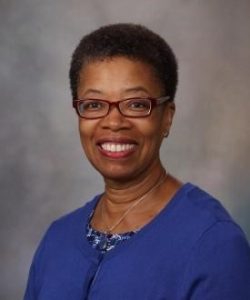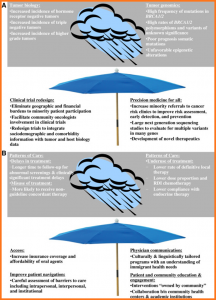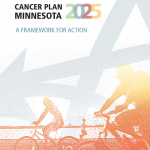 The Breast Cancer Education Association mission is to educate the community by providing support and information about detection, diagnosis, treatment and survivorship. The BCEA annual conference brings the community’s best medical and therapeutic breast health experts together for a day of learning on how to live as fully as possible when breast cancer touches your life. In addition, BCEA offers webinars on a variety of breast health topics, such as updates in imaging, reconstruction and survivorship.
The Breast Cancer Education Association mission is to educate the community by providing support and information about detection, diagnosis, treatment and survivorship. The BCEA annual conference brings the community’s best medical and therapeutic breast health experts together for a day of learning on how to live as fully as possible when breast cancer touches your life. In addition, BCEA offers webinars on a variety of breast health topics, such as updates in imaging, reconstruction and survivorship.
In the fall of 2017, BCEA launched a new category of webinars: Sharing our Voices. These webinars provide an opportunity to learn more about breast cancer in communities with an unequal breast cancer burden. In March 2018, BCEA was pleased to host Dr. Lonzetta Neal, Assistant Professor of Medicine, Mayo Clinic Rochester, to present Sharing our Voices: Racial Survival Disparities in Breast Cancer. Speaking about the “perfect storm” impacting breast cancer survival in African American women in Minnesota, Dr. Neal begins by stating “African American women are less likely to be diagnosed with breast cancer than white women but are more likely to die from it”. That powerful opening validates the necessity to understand and address the factors that create this “perfect storm”.

The webinar focuses on reviewing the barriers to early diagnosis, establishing an individualized approach to evaluating risk, the role of breast imaging and increasing genetic and risk
evaluation referrals in minority populations. Factors contributing to this “perfect storm” in the African American community include variations in tumor biology (with women in the African American community having higher rates of triple negative breast cancers) and the impact that variants of BRCA mutations may have. Patterns of care are cited as barriers for this community, and may include delays in screening or treatment due to financial and logistic barriers, treatment that does not follow therapy guidelines/underuse of treatment, and the need for clinical trial redesign to increase minority participation.
Dr. Neal discusses two risk models available online – the GAIL and IBIS, and the process for identifying individuals who may need genetic counseling, starting with the family history. Identifying risk factors and the strategies to reduce them will be discussed in the counseling visit. Lifestyle modifications for risk reduction may include reducing weight, increasing physical activity, reducing alcohol consumption, chemoprevention or surgery. An individualized approach is favored as “one size does NOT fit all”. Breast imaging using tomosynthesis (3D mammograms), Molecular Breast Imaging (MBI) or MRI may also be included in a comprehensive plan.
Dr. Neal concludes with a summary of the “perfect storm” impacting African Americans – and other minority population women – and confirming the need for an individualized approach to guide risk reduction strategies.
Webinars are recorded and available for viewing online. To learn more about the Breast Cancer Education Association, visit www.BreastCancerEducation.org.

